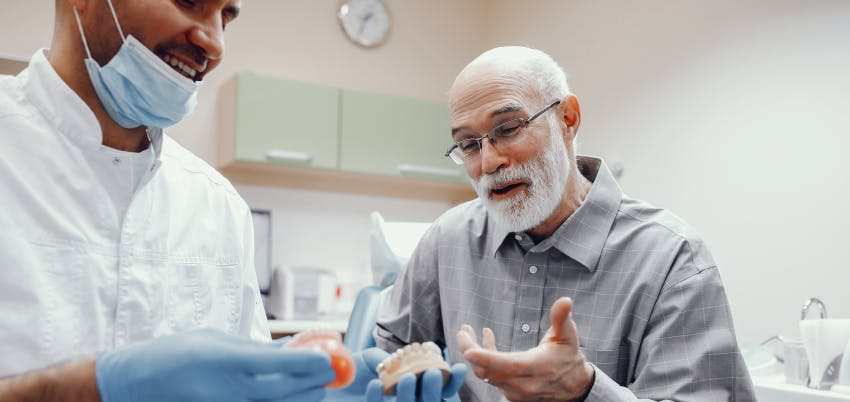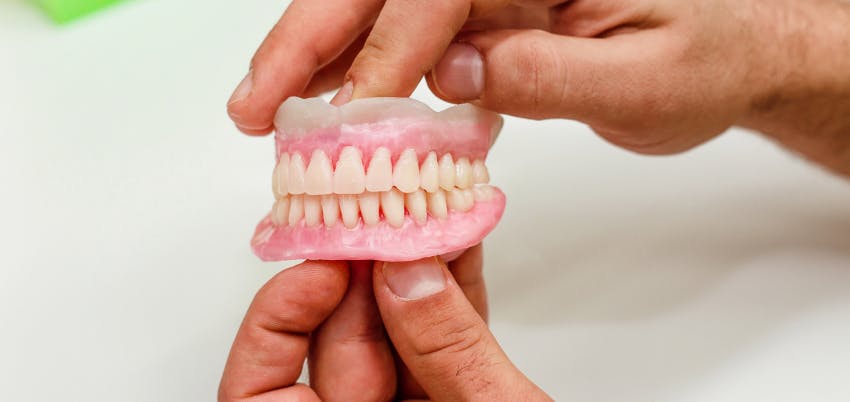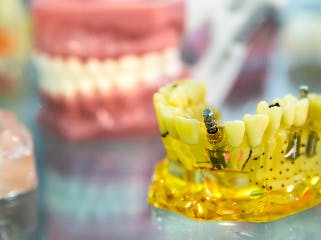
Peri-implantitis: Dental implant failure
by Wildsmile
Treatments such as dental implants are nowadays one of the best options to recover one or more missing teeth, as they are safe, effective and very resistant. As with any surgical procedure there can be complications or inflammatory mechanisms from infectious causes. In this article we will tell you about peri-implantitis: its origins, symptoms and treatments.
What is peri-implantitis
Peri-implantitis is an inflammatory process that affects the tissues surrounding the dental implant, leading to the loss of the bone support to which it is attached. This inflammatory process generally starts in the soft tissue, i.e. the gums, and if it is not treated in a prompt manner, the infection will progress to affect the bone. In the worst cases, it will lead to implant failure.
What are the causes of peri-implantitis?
There are several causes of peri-implantitis, the most common being poor oral hygiene. Patients often believe that by having an artificial tooth they do not need as much care as natural teeth, but they could not be more wrong, dental implants need more care, as they are foreign bodies. Tobacco consumption, occlusal overload problems and poor bone quality are also factors that can cause peri-implantitis. It should be pointed out that nowadays the success rate of dental implants is more than 90%, and the probability of developing periodontal disease and treatment failure is minimal.
Symptoms of peri-implantitis
The signs to determine peri-implantitis are the following:
- - Redness of the mucosa surrounding the implant.
- - Bleeding or suppuration
- - Pain to the touch
- - Implant mobility.
- - Bone loss, proven by radiological tests.
- - Swelling, numbness around the implant.
- - Halitosis.
- - Fever
Treatments for peri-implantitis
The most important thing is to control and eliminate the bacterial infection, for which the use of antibiotics is essential, as well as the elimination of the peri-implant pockets (abscesses in the gums) and a profound dental cleaning. There are also techniques such as subgingival debridement or gingival scraping, which consists of separating the gingival tissue by mechanical and manual methods.
It is very important to remember that dental implants require greater care, as they are not part of the body and do not have complex self-protection systems, as natural teeth do. Good oral hygiene is the key to forgetting about suffering from peri-implantitis.
You may be interested in reading: WHICH IS THE PROCESS FOR THE PLACEMENT OF A DENTAL IMPLANT?
Related article: DENTAL IMPLANTS: WE ANSWER ALL YOUR QUESTIONS
Want to learn more about this?
Contact us
Your contact request is registered. We will contact you as soon as possible.
Lorem ipsum dolor sit amet, consectetur adipisicing elit. Adipisci alias aliquid amet commodi dolor, dolore doloremque dolores fugit quod repellat.
 ENG
ENG




